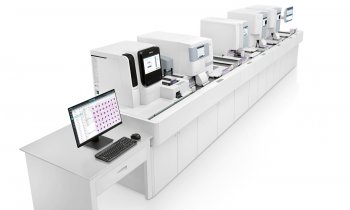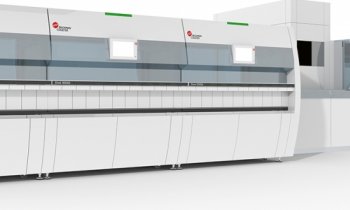Devices for Dignity
New D4D report provides hope for communication
The lives of people who find communication difficult are to be dramatically improved following a report published by Devices for Dignity (D4D), into Voice Output Communications Aids (VOCAs). The free to access report, whose development was led by Barnsley Hospital and NHS Sheffield as part of a D4D consortium, is designed to improve the development of new technologies and stimulate further research in the Augmentative and Alternative Communication (AAC) field.


Simon Judge of Barnsley Hospital NHS Foundation Trust and Gillian Townend of NHS Sheffield authored the report which found that not being able to effectively communicate can be deeply frustrating and detrimental to people’s lives but that VOCAs provide them with a voice, improving their quality of life.
VOCAs are part of AAC - extra ways of helping people who find it difficult to communicate by speech or writing.
D4D felt that users had not been given a voice regarding the effectiveness of their devices and in response to the lack of previous research, D4D, a national Health Technology Cooperative, commissioned the two-year project to investigate user requirements, future improvements and areas for future research.
The report has already led to a number of companies speaking to D4D on how it can be implemented in their technologies.
Toby Churchill, a leading company in the AAC field, have already started using the report to shape their own product developments.
David Mason, MD of the company, said: “I found the D4D AAC report to be a comprehensive study that is valuable to Toby Churchill Ltd as we seek to develop and improve our products, and the whole user experience of our AAC devices. The report has encouraged us to seek to do further work with D4D, which we hope will commence soon.”
The report has also inspired D4D to engage users in the design process because the feedback given by users indentified a number of shortcomings of existing devices, such as slowed communication when using communication devices causing deep frustration.
User involvement will help to make the devices more reliable, durable, portable, and simple to use and encourage more successful use in a context that is wider than a single place such as at home or in school.
In order to assist the collection of data for the report, D4D – who are hosted by Sheffield Teaching Hospitals NHS Foundation Trust, also designed a decision support tool as part of the consideration, trials, selection, provision and review processes resulting in more informed choice and narrowing the gap between current tools available to AAC professionals to and potential users.
Devices for Dignity (D4D), hosted by Sheffield Teaching Hospitals NHS Foundation Trust, is a Healthcare Technology Cooperative which drives forward innovative new products, processes and services to help people with debilitating conditions preserve their dignity and independence. It is a national resource.
For more information and to download the report, please visit: www.devicesfordignity.org.uk/
05.05.2011










